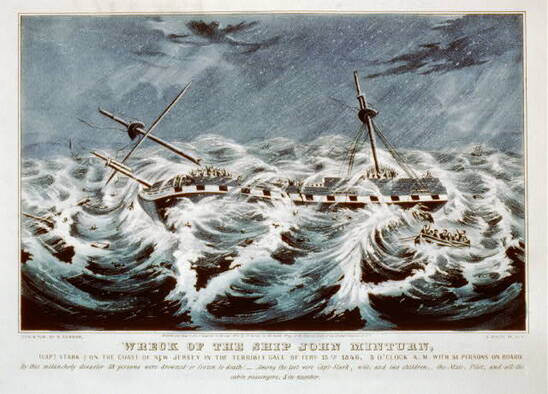* Home
|
-- New Jersey History Timeline - February* January * February * March * April * May * June * July * August * September * October * November * December On February 1 of 1913 The Paterson Silk Strike begins as weavers of the Paterson mills strike to protest the proposed work increase from running two looms to four. The Strike eventually involved 20,000 workers, with additional issues including demands for an eight-hour workday, safer working conditions and an end to child labor. The strike ended five months later, on July 28, with a rejection of the major worker demands. During the course of the strike, approximately 1,850 strikers were arrested, including Industrial Workers of the World (IWW) leaders Bill Haywood and Elizabeth Gurley Flynn. On February 2 of 1992 Bert Parks, master of ceremonies for the Miss America Pageant in Atlantic City from 1955 to 1979, dies at the age of 77 On February 3 of 1924
Woodrow Wilson, 28th US President, former New Jersey governor and Princeton University president, dies in Washington of a stroke at the age of 67 On February 4 of 1825
Four students at The College of New Jersey (renamed Princeton University in 1896) convene the first meeting of The Philadelphian Society of Nassau Hall, a fraternity formed due to the 'low state of religion' at the College which later sponsors religious lectures and Sabbath services.
On February 6 of 1951
The Broker, nickname of a Pennsylvania Railroad train known for its high number of Wall Street commuters as passengers, derails near Woodbridge Township on the North Jersey Coast Line, resulting in 75 deaths and over 500 injuries. It is the deadliest railroad accident in the state’s history and among the top five in the United States. 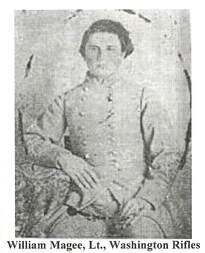
On February 7 of 1866
William Magee of Newark, who enlisted at age 14 as a drummer boy in the Union Army, is awarded the Medal of Honor for service during the Third Battle of Murfreesboro in Tennessee in the Civil War. Magee claimed he infiltrated Confederate lines and stole artillery pieces which he returned to the Union camp, but his account was later shown to be fabricated. He remains the youngest person from New Jersey to be issued the Medal of Honor.
On February 9 of 1996
Two New Jersey Transit commuter trains sideswipe each other in Secaucus after one of the trains goes through a stop signal, killing three people, including the engineers on each train, and injuring 168 of the 400 passengers. On February 10 of 2016
Governor Chris Christie suspends his campaign for the Republican presidential nomination following his disappointing sixth place finish with only 7% of the vote in the New Hampshire primary On February 10 of 1665 The document entitled "Concession and Agreement of the Lords Proprietors of the province of Nova Caesarea or New Jersey to and with All and Every the Adventurers and All such as Shall Settle or Plant there " is published after execution by John Berkeley and George Carteret, who had received the grant of lands comprising the colony from the Duke of York. The document seeks to encourage settlers by offering guarantees of freedom of religion and self-government and giving generous pieces of land in order to encourage development and profits for the proprietors. 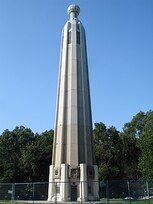
On February 11 of 1938
On what would have been his 91st birthday, a memorial tower to Thomas Alva Edison is dedicated at the site of his Menlo Park laboratory (in current Edison Township), which was where he invented the incandescent bulb and the phonograph. On February 12 of 1899
During one of the coldest winters ever recorded affecting much of the nation, a blizzard strikes the Northeast, with snow depths in Cape May reported at over 30 inches. On February 13 of 1935
A jury in the trial at the Hunterdon County Courthouse in Flemington of Bruno Richard Hauptmann returns a verdict of guilty on a charge of murder resulting from the kidnapping of the infant son of Charles and Anne Morrow Lindbergh on March 1, 1932 On February 14 of 1989 New Jersey's first liver transplant is performed at University Hospital in Newark at the then New Jersey Medical School. On February 15 of 1846
The John Minturn, a three-masted packet ship which had sailed from New Orleans headed for New York carrying $80,000 in goods and a total of 51 crew and passengers, sinks in a gale off Mantoloking in Ocean County, with 38 deaths. The 1846 wreck sparked the development of the United States Life-Saving Service, an agency to assist shipwrecked crews and passengers which would eventually merge into the United States Coast Guard. The disaster was depicted in this 1846 hand-colored lithograph by Currier and Ives. On February 16 of 1862
William Pennington, Governor of New Jersey from 1837 to 1843 and Speaker of the US House of Representatives from 1860 to 1861 at the outbreak of the Civil War, dies at the age of 65 in Newark. On February 17 of 1986
James Burke, chief executive of Johnson & Johnson, announces at a press conference at its headquarters in New Brunswick that the company will no longer manufacture and sell its drugs in capsules after a fatal cyanide tampering incident in New York. On February 18 of 1967
J. Robert Oppenheimer, the 'father of the atomic bomb' who led the Manhattan Project to develop the bomb during World War II, dies in Princeton at the age of 62
On February 19 of 1666
The first town meeting in New Jersey takes place in Elizabethtown when sixty-five male residents take the Oath of Allegiance and Fidelity to “our Sovereign Lord King Charles the Second and his Successors..." On February 20 of 1791
Dr. James Newell, a Monmouth County physician, military surgeon during the Revolutionary War and past president of the New Jersey Medical Society, dies one day before his wife Elizabeth also dies of a fever. Married for over forty years, they are buried on the same day.
On February 22 of 1944
A B-17 bomber flying from Bangor, Maine, to Fort Dix strays off course in bad weather and crashes in the Delaware Water Gap, killing all 12 on board.
On February 24 of 1978
Kevin Porter of the New Jersey Nets breaks the National Basketball Association's record with 29 assists in a 126-112 victory over the Houston Rockets in a home game in New Jersey. 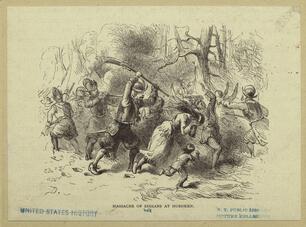 Image: New York Public Library Image: New York Public Library
On February 25 of 1643
In what would become known as the "Pavonia Massacre," the Dutch governor of Nieuw Amsterdam, William Kieft, directs a nighttime surprise attack on Native Americans of the Hackensack tribe at Pavonia (current Jersey City), killing over 100, including women and children. Dutch soldiers reportedly bring the severed heads of their victims back to Fort Amsterdam for use in a kickball game. The assault unites the diverse tribes of Native Americans against the Dutch, forcing many Dutch settlers in New Jersey to return to Nieuw Amsterdam to seek protection. On February 25 of 2002
Jayson Williams, former pro basketball player with the NBA's Philadelphia 76ers and the New Jersey Nets, is charged with manslaughter and other felonies following an incident at Williams's estate in Alexandria Township in Hunterdon County on the prior February 14 in which a limousine driver was shot and killed by a shotgun accidentally discharged by Williams. The driver had been hired to drive Williams's NBA charity team from a Pennsylvania event to his mansion. In April 2004, Williams was acquitted of the more serious charges against him, but the jury deadlocked on a charge of reckless manslaughter, and in a 2010 plea deal he subsequently pled guilty to aggravated assault and served over two years in prison. On February 26 of 2004
The Ford Assembly Plant in Metuchen is closed. Since it began operations in 1948, the plant produced nearly 6.9 million vehicles, including one of three sites in the US making the Mustang model.
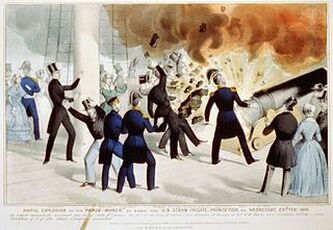
On February 28 of 1844
In a demonstration cruise on the Potomac River for 400 dignitaries including President John Tyler and other high officials and business leaders, a 12-inch cannon aboard the new frigate USS Princeton explodes as it fires a ceremonial salute while it passes Mount Vernon, killing six, including Secretary of State Abel P. Upshur and Secretary of the Navy Thomas Gilmer. The ship is commanded by Captain Robert Stockton of Princeton, who is later absolved of responsibility for the accident. |

